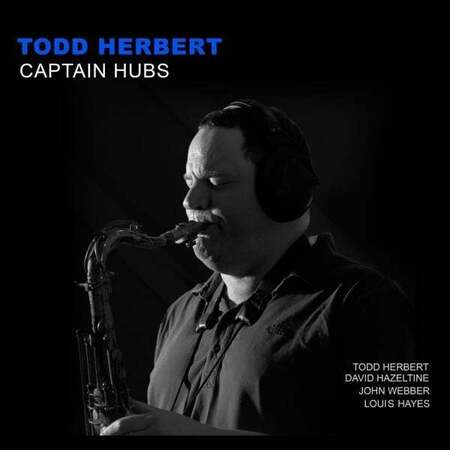
New York-based saxophonist Todd Herbert reaffirms his place in the lineage of straight-ahead jazz with his latest release, “Captain Hubs.” Recorded in the summer of 2024 in collaboration with David Hazeltine, John Webber, and Louis Hayes, this ten-track collection is carried forward by a quartet of seasoned players who thrive in each other’s company.
The album opens with the title track, “Captain Hubs,” an electrifying number that sets the mood with its buoyant forward motion. Herbert’s sax leads with authority before yielding space to Hazeltine, who contributes with a crisp and virtuosic performance that’s immediately followed by a rapid drum solo from Hayes.
https://toddherbert.hearnow.com/captain-hubs
The tone remains upbeat until the quartet reaches their rendition of Fred Coots’ 1938 jazz standard, “You Go to My Head,” an evocative ballad that slows the pace and allows Herbert’s warm phrasing to shine. This track showcases Herbert’s reverence for the classics, contrasting with his innovative spirit.
Herbert’s original, “Temple of Silence,” is an interesting track, as the interlude with just drums and a soft piano really throws you off. Its deliberate pacing and interplay give the impression of a conversation among equals, and this is a track that’s definitely intended to challenge the listener.
The record closes with two more classics in the form of Wayne Shorter’s “Fee-Fi-Fo-Fum” and John Coltrane’s “Straight Street.” The former sets up the album for its close with its slow tempo while the hard bop of the latter brings the flair that makes this record memorable at its close.
The production throughout the record is understated, letting the music breathe. The mix captures not only the heft of Herbert’s sax but also the sparkle of Hazeltine’s piano and the clarity of Webber’s bass lines. Hayes’s drumming cuts through with sharpness and swing, anchoring the quartet without overwhelming it.
Captain Hubs does not seek to reinvent the jazz quartet, nor does it lean into avant-garde experimentation. Instead, it presents tradition as a living language, refreshed by players who know how to balance craft with spontaneity.
